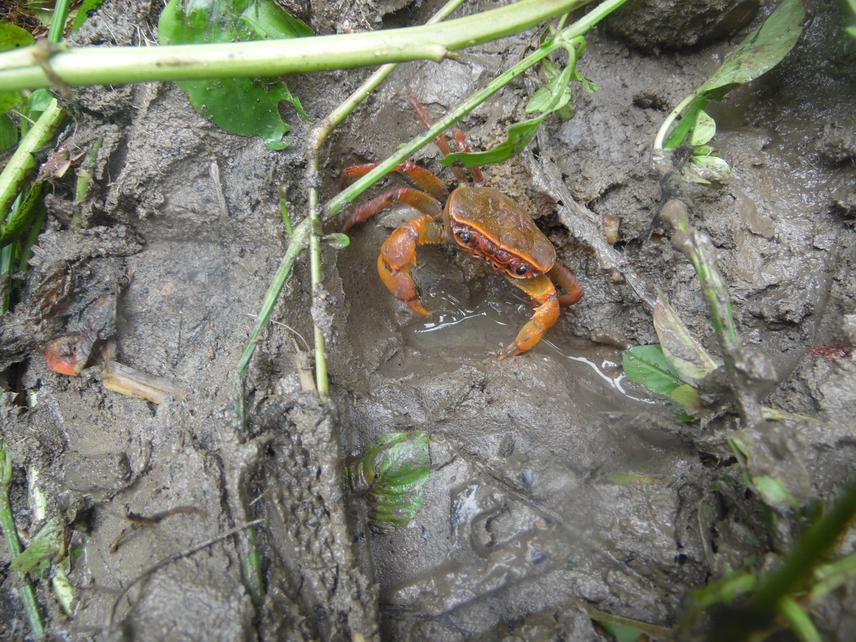Carine Rosine Tchietchui
Mvogo Ndongo et al. (2024) recently discovered and described the threatened freshwater crab Sudanonautes nkam from two small populations in streams near Yabassi, Cameroon (the ‘Parc des Princes’ in Yabassi city, and ‘Banya’ in the nearby forest) at the remote forest of Ebo. This species appears to be facing threats from widespread anthropogenic activities such as habitat destruction, exploitation for human consumption, and detergents and other harmful chemicals from washing clothes that may affect juvenile crabs. The proposed project aims to collect data on S. nkam that include population structure (sex ratio, size, and abundance), and reproductive biology (breeding needs, recruitment, and fecundity), useful to assess its IUCN Red List status. The project also includes an on-going education component that will largely aim to mitigate anthropogenic threats to the crab, S. nkam and its habitat. At the same time, our educational efforts will also have a positive impact on other threatened species. In addition to freshwater crabs, the forest and river networks in Yabassi in the Ebo forest zone are also a refuge for a host of charismatic wildlife, that includes chimpanzees, monkeys, manatees, fishes, birds, turtles, snakes, and amphibians.

Sudanonautes nkam (natural coloration). ©Dr. Pierre A. Mvogo Ndongo, 2015.
Mitigation of the threats to Sudanonautes nkam will also benefit other threatened species and wildlife that depend on clean freshwater habitats. The localities where S. nkam is found in Yabassi is a relatively small area where community engagement is quite feasible, especially with the kind of ‘low tech’ approach that has proven to be successful in the context of rural Africa. This project is hosted by the Unit of Conservation and Biodiversity Discovery at the Cameroon Association for Research on Crustaceans and other Aquatic Resources (Obala, Po.Box 43). The results and recommendations from this proposed project will be shared with: (1) local people (younger and senior), during educational component, (2) stakeholders involved in the conservation of nature/biodiversity in Cameroon, students and local scientists from Universities during conferences, (3) international scientific community through articles and publications.